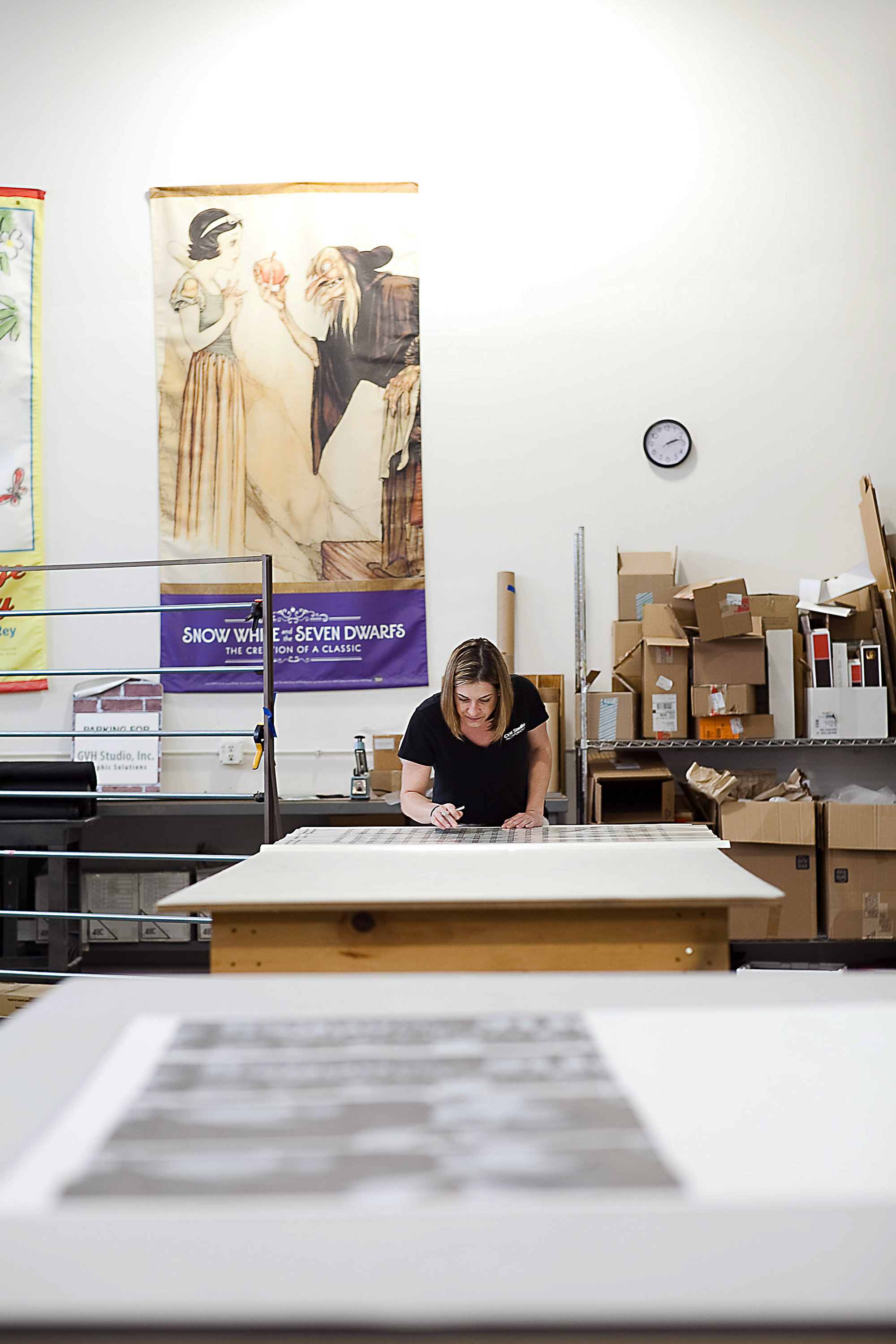Entrepreneurship and Small Business Thrive in The Shires Due To Community
Written By Cherise Madigan in partnership with the Bennington Area Chamber of Commerce
Vermont Wooden Mill - Manchester, VT
Starting a business can be intimidating, overwhelming—even risky. But here in The Shires of Vermont, the prospect of entrepreneurship becomes much less daunting when you consider the community full of resources and support committed to helping you succeed.
With a wealth of guidance, training opportunities, and professional networks on the local, regional, and statewide levels, it’s no surprise that small businesses have a legacy in the Green Mountain state. Here in Bennington county, vibrant town and village centers including downtown Bennington, Manchester, and Arlington have long been lined with shops and services built the Vermont way—from the ground up. And with such close-knit communities nestled in these mountains and valleys, those businesses often find their most significant support from their own friends and neighbors.
“Here in The Shires, people know each other,” explained Jonathan Cooper, Community and Economic Development Specialist for the Bennington County Regional Commission (BCRC). “These are small towns—our largest is just fifteen and a half thousand people—so this is a real asset in the way that you can reach some of the potential marketplaces a little more quickly. You can generate local support, and you can build awareness of your brand.”
Vermont as a whole has proven to be fertile ground for new businesses, ranking second in the nation on the Kauffman Foundation’s 2016 Index of Main Street Entrepreneurship for Smaller States and boasting homegrown ventures like Ben & Jerry’s, Keurig Green Mountain, Burton, and Orvis. Vermont also ranks number one on the Opportunity Index, with 23 percent of employment in the state stemming from small businesses (establishments with less than 20 workers), compared to the national average of 17 percent, according to the U.S. Census Bureau's Statistics of U.S. Businesses.
JJ Williams, owner of Williams Financial in Bennington, Vermont
“Vermont is very interesting—it must be our ingenuity and can-do attitude,” mused Vermont Economic Development Commissioner Joan Goldstein. “We rank in the Kauffman Report’s top ten for startup activity in smaller states, and New Hampshire ranks 24th. That’s interesting, and tells you something about the culture of Vermont.”
“We live in a place where people are very intentional about where they spend their dollars,” added Cooper. “There’s a broad support for local businesses.”
In Bennington county specifically, our bucolic landscape has proven to be an unexpected yet impactful boon to business development according to Michelle Marocco, the Executive Director of the community consortium and coworking space The Lightning Jar.
“We often assume that innovation only happens in cities; that a place needs to look like Silicon Valley to be suitable for entrepreneurship,” Marrocco said. “It’s simply not true. Rural areas like The Shires allow for greater access to decision makers, and that can make a huge difference in the success of an entrepreneur.”
For entrepreneurs who utilize the resources provided by The Lightning Jar, she points out, it becomes even easier to find the help that you need to get your idea off of the ground.
“The first phase of any new venture involves asking a lot of questions and, while it’s great to ask your friends and family, chances are they’re not experts on the subject,” Marrocco continued. “Here, you can talk to the folks that create policies and, chances are, those same folks are actively trying to help you succeed. You don’t get that same level of care and support in more urban areas.”
Jayne Outwater of Knapps in Bennington, Vermont
“There are a few large employers in Bennington County like Mack Molding and NSK, but there’s also a fair amount of small businesses,” Goldstein added. “There is a great group of community members, businesses, and banks making things happen in Bennington.”
Alongside resources like the Small Business Administration supported Small Business Development Center, Bennington boasts organizations like the BCRC and The Lightning Jar, which works closely with the non-profit banking alternative VSECU to host their co-working space within the organization’s Bennington branch.
“The Lightning Jar is a collaborative coworking space designed to help folks in the region start and grow their businesses,” Marrocco explains. “We offer affordable office space, complete with internet, meeting room space, printers and general office supplies, networking opportunities, and programs and events that aim to help entrepreneurs, small businesses, and professionals overcome challenges and succeed.”
“The Lightning Jar is really a network of people, both entrepreneurs and professionals of other varieties,” added James Trimarchi, a member of the organization’s Advisory Board and Director of Planning at Southwestern Vermont Health Center. “The idea is to create an environment where they can synergize, bounce ideas off of each other, and leverage their skills and assets to everyone’s benefit.”
The Lightning Jar works with entrepreneurs at any stage of their journey to connect them with venture capital funds and scope out their development, serving both beginners and late-stage business owners aiming to reach scale. The organization also runs programs on subjects like maintaining an online brand and asking for a pay raise, alongside coordinating social events through which local professionals can mingle and network.
“As a fairly young organization, we’re still nimble enough to offer individualized support to our entrepreneurs,” said Marrocco. “Since I’ve started, we’ve had quite a few people walk in and ask about starting businesses. These conversations, and connecting people to resources, are some of my favorite parts of this job.”
The Lightning Jar also facilitates pitch competitions for aspiring entrepreneurs, similar to the ABC competition show “Shark Tank.” There, experts offer suggestions on how to enhance ideas and presentations in preparation for the statewide Road Pitch competition created by Burlington’s Fresh Tracks Capital.
The Bank of Bennington
“There’s a venture capital firm in Burlington, and they happen to ride motorcycles,” Trimarchi explained. “They go around the state every year in August to hear pitches, and they really try to challenge pitchers to decide if they want to invest. For the last four or five years the Lightning Jar has run that local event, and this year at the Oldcastle Theatre we had five fantastic pitchers—the Road Pitch group actually said they were five of the best across the state.”
“We’ve seen some really really good success over the last few years with Road Pitch,” added Cooper. “The organizers of that event routinely describe the Bennington pitches as being some of the most well-prepared and well thought-out that they see in their journey around the state. That really is a testament to the fact that the support system here is not only very well attuned to what people are looking for in terms of investment, but also attuned to how best to build out your idea.”
Educational opportunities like Startup 802, a multi-week course offered through a collaboration between The Lightning Jar and the Community College of Vermont (CCV), also offer resources for entrepreneurs to strengthen their foundation before venturing into the world of business. On a broader scale, the BCRC has worked closely with the Bennington County Industrial Corporation (BCIC) to unite representatives from government, business, and more under a single steering committee to advance entrepreneurial activity and economic development. Regional collaborations with Windham County to the East, Cooper adds, has helped the Shires to strengthen the Southern Vermont Economic Development Zone and led to the creation of a Comprehensive Economic Development Strategy (CEDS). Together, organizations from both regions work to tackle shared issues like youth retention while seeking support at both the state and federal levels.
That collaborative spirit doesn’t end at state lines, however, as entrepreneurs in The Shires benefit from their proximity to major metropolitan areas like Boston and New York City as well as the Berkshires, Albany, and more.
Lynn of The Tuscan Sunflower prepares a flower bouquet
“What I love about The Shires region is that they realize they’re part of a greater whole,” commented Robert Braathe, who runs the business support organization Braathe Enterprises out of nearby Saratoga Springs, New York alongside working closely with the Startup 802 program here in Bennington. “You’ve got Bennington and Manchester, but there’s a whole ecosystem into New York, Massachusetts, and north into Vermont.”
“Look into the broader picture and think big,” he encourages aspiring entrepreneurs, “because there’s always an opportunity to expand your reach. It’s all about community.”
A high percentage of second-homeowners and retirees add to the external dollars in the region, according to Cooper, and dollars do make their way to Bennington from area like the Berkshires and Albany. Those spent and invested dollars don’t only go to “angel investor type of archetypes of entrepreneurship,” he counters, but also less traditional models like remote work or local businesses under new ownership.
“There’s in fact a very knowledgeable investor base with a lot of capacity,” Cooper explained. “The potential is there for the further reaching entrepreneurial startups, and there is a critical mass of entities that are very much in support of where you are in this process.”
Considering that the region regularly attracts events like weddings or vacations, business models focusing on a non-residential client base also find a plethora of growth potential. Remote work has also become popular among those who dream of Vermont’s beautiful scenery and quality of life—and the $10,000 incentive offered by Governor Phil Scott doesn’t hurt either.
“There’s a lot of ways in, and it doesn’t have to just be you in a garage with the Thomas Edison lightbulb going off,” Cooper said. “There’s a lot of on-ramps because we’re not saying that this has to happen in one way—we’re saying it has to start in your way, and you should be as prepared as possible.”
“This is a community that is interested in your ideas,” said Marrocco. “We want people to start new businesses, and we want those businesses to succeed. The fact that people will offer you their connections and support so readily is pretty special.”
That support also advances the economic, cultural, and social vibrancy of the region by facilitating bustling centers of business and fostering economic development. On a larger scale, the work being done by these local, regional, and state organizations serve a higher purpose as well: to ensure a strong future for The Shires of Vermont.
“When you think about economic development, we wouldn’t be anywhere without entrepreneurship,” said Goldstein. “Economic development is all about breaking down barriers to growth and developing a healthy entrepreneurial ecosystem. When a company can grow, that grows the tax base and brings more money into the community, creating a cycle of prosperity.”
“Economic growth is more money coming in than going out, and when you think about how to increase the money coming in, you either have to have existing businesses in the community grow, or have new businesses to start and bring in new money,” Trimarchi explained. “Entrepreneurship is really a key economic strategy to increase the flow of money into the community, and to keep money in the community rather than people buying goods and services from outside—or online.”
GVH Studio, a large format graphic fabricator, provides material for many community events
In addition to those economic incentives, however, laying the groundwork for entrepreneurs to enjoy flexible scheduling or remote work can also help attract more working parents and young families to the region according to Cooper. Brick and mortar businesses, Braathe adds, bring downtown landscapes to life and create conversation.
“The less obvious impact of entrepreneurship is increased creativity in the region,” Marracco added. “When people launch startups, open small businesses, and innovate within their companies they model what is possible. The more role models that exist, the more opportunities young people realize are possible.”
“There’s a lot of expertise in the area, and people who are willing to make the time to help you road-test an idea and to see if you may be able to put in a little additional work, or to challenge some of your perceptions or presumptions about the market or your readiness to deliver,” Cooper concluded. “Don’t be afraid, but definitely be in touch.”






